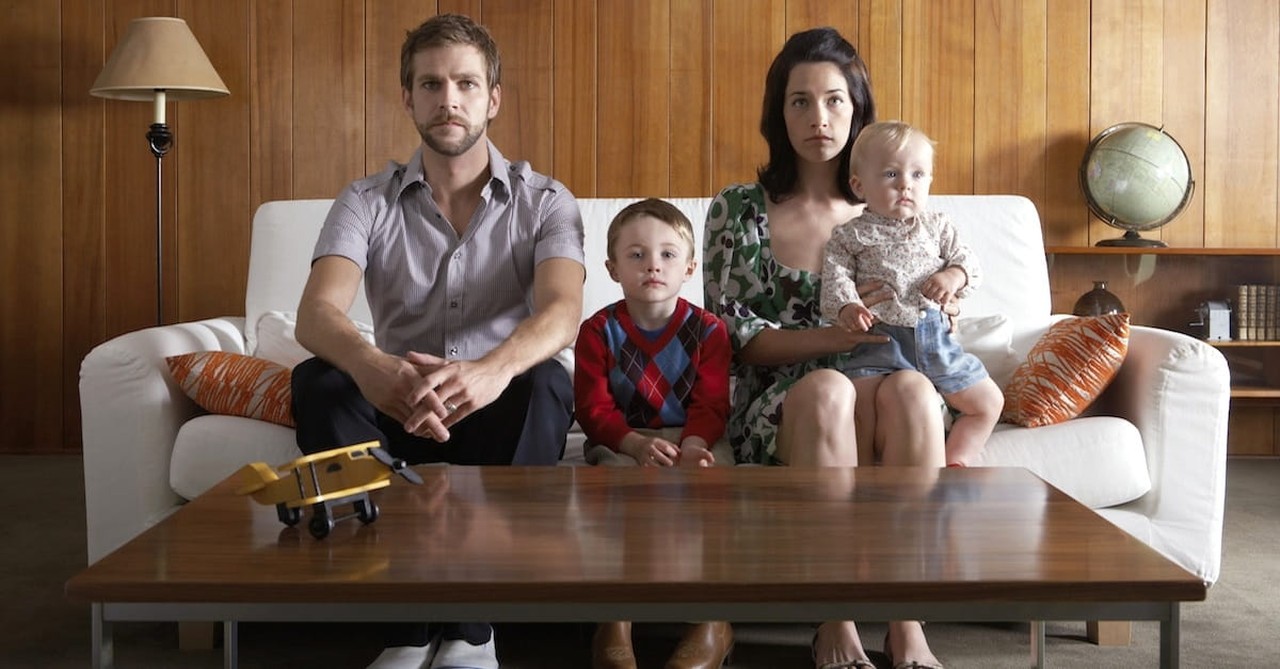
Most of my weekdays follow a similar pattern. I take the scenic route home from work and turn the radio off when I cross the highway five minutes from my house. In the silence, I ask God to help me stay fully invested in my family when I get home. Some days, the front door flies open as I pull into the driveway and some combination of my four children greet me before I can get out of the car. Other days, I walk to the front door, pause for a moment, and open it, having no idea what may greet me on the other side.
The few hours between arriving home from work and putting the kids to bed will be the most challenging, and often the most rewarding, of my day. Raising children frequently brings me face to face with my own ignorance, foolishness, and inadequacies. My children presented me with problems I never anticipated, disobey in ways I never imagined, and bless me in ways I only dared to dream.
Prior to the birth of the first of my three daughters, I assumed that I would struggle early as a Dad, but eventually figure out what I was doing. Instead, what I’ve found is that the moment I think I know what I’m doing will be followed by a reminder that I have a long way to go. Like every difficult thing in the world, the rewards of parenting help me weather the challenges. The hugs, the laughs, the smiles, and the blessing of seeing my kids grow dwarf the sometimes-heartbreaking realities that accompany raising children. To experience the good times, I first had to abandon some ridiculous preconceived notions and myths I believed about parenting.
There are five parenting myths I believed that were harmful and wrongheaded.
Myth #1: Good Parenting Always Leads to Well-Behaved Children

Myth #1: Good Parenting Always Leads to Well-Behaved Children
SLIDE 1 OF 10
At some point along the way I imbibed a popular understanding of the proverb that says “Train a child up in the way he should go; even when he is old he will not depart from it.” The Bible generally ties the direction of our children’s lives to parenting, but it never promises that good parenting will certainly produce obedient children.
Photo courtesy: ©Thinkstock
The Truth:

The Truth:
SLIDE 2 OF 10
When we read a proverb that holds out an incentive for wise behavior, we should remember that Job is just a couple of books before Proverbs. Aside from Jesus, who in Scripture embodied wisdom like Job did? Yet, he suffered all the calamities that Proverbs says will fall on a fool. We live in a world that is broken by sin, have an enemy who longs to test us as he did Job, live in a fallen world where the pull of sin is dressed up to look like the rewards of wisdom, and dwell in sinful flesh that drags us towards the sin that so easily entangles us. Things in this world don’t often turn out the way they should, so we must remember that even a perfect job of parenting would need God’s grace to make it effective.
While I have needed to remember this so my expectations are not too high, it has also been an encouragement to me. When my children disobey, I often want to blame myself because I think they would be more obedient if I was a better parent. While I never need to stop growing as a Christian and a father, I must also understand that sometimes my children are just set on disobedience. They stand in need of correction and discipline, but their disobedience is often not tied to some deficiency in my parenting.
Photo courtesy: ©Thinkstock/gpointstudio
Myth #2: Family Devotion is My Main Teaching Time

Myth #2: Family Devotion is My Main Teaching Time
SLIDE 3 OF 10
We love our family devotions. They can descend into chaos since I have a chatty four-year-old daughter and a two-year-old son who acts like a two-year-old boy at all the wrong times. Despite the craziness, when we read the Bible, pray, and sing together, some great things can happen.
When I look at the amount of time we spend in family devotions compared to the time we spend on other activities, it becomes obvious that devotions cannot be the primary time I teach my children. Some of the things we talk about in family devotion seem to stick with them, but they remember much more of what we talk about in everyday conversations.
Photo courtesy: ©Thinkstock/evgenyatamanenko
The Truth:

The Truth:
SLIDE 4 OF 10
The Bible talks like this, doesn’t it? In Deuteronomy 6, Moses told parents in Israel to talk about the things of God with their children as they sat in the house or walked by the way. He anticipated the amount of time we would spend doing mundane activities together and prescribed a course of using these opportunities to talk with them about the most important things in the world.
Photo courtesy: ©Thinkstock/AndrewOlney
Myth #3: My Children Will Remember My Words More than My Example

Myth #3: My Children Will Remember My Words More than My Example
SLIDE 5 OF 10
I assumed my kids would hear what I say, see me fail, and put more stock in my words than my example. I thought they would remember Dad’s ideas and convictions more than what I actually did. I should have known this, but my children possess a highly-tuned hypocrisy meter. They can smell inconsistencies a mile away.
My children hear my words, but they remember and emulate my example. If I speak rudely to someone in our home, my kids pick up on that and take it as a license to do the same. Within an hour of harsh words or an angry outburst, I will have to step into a situation where two kids are at each other’s throats with insults aimed at the most sensitive places.
Photo courtesy: ©Thinkstock/LittleBee80
The Truth:

The Truth:
SLIDE 6 OF 10
My kids take what I tell them more seriously when they see me living out the thing I tell them to do. If I tell them to keep their rooms clean and then leave shoes all over the house, they ignore what I say and do what I do. However, when I tell them about forgiveness, then forgive one of them when they are wrong and treat them as if nothing happened, they pick up on that and learn how to show forgiveness as well.
Photo courtesy: ©Thinkstock
Myth #4: I Should Not Show Weakness to My Kids

Myth #4: I Should Not Show Weakness to My Kids
SLIDE 7 OF 10
I’m not sure where I got the idea I should always project competence and strength in front of my children, but I picked it up somewhere. I thought that my kids should not see me fail, see me in despair, or see me admitting that I got something I wrong. It must have come from a desire to not give them a way to undermine me or to allow them to find a weakness they could exploit, but it was a foolish and anti-Gospel way to approach parenting.
Photo courtesy: ©Thinkstock/Liderina
The Truth:

The Truth:
SLIDE 8 OF 10
What I have noticed is that my honesty about my own struggles, sins, and weaknesses have helped my kids work through theirs. When I talk to them about my fears and how I hand them, they’ve learned how to approach their own fears. As they have seen me talk about things that break my heart with tears in my eyes, they have seen that it is okay for them to acknowledge their own pain. My vulnerabilities haven’t caused my children to undermine me, they’ve built trust between us and helped them learn how to handle their own.
This has been especially important for me when I sin against my children. Everything in me wants to cover up my wrongs against them under the shroud of, “I’m Dad and I’m always right.” This desire to prove I’m right is nothing more than another manifestation of my own sin. When I sin against my children, by accusing them of something they didn’t do, for example, I started going to them, admitting where I was wrong without excuse, and asking them to forgive me. This is not some parenting technique. They bear the image of the living God and my sins against them are just as real and serious as my sins against any other person. Therefore, I need to own my sins against them and seek reconciliation.
Photo courtesy: ©Thinkstock/monkeybusinessimages
Myth #5: There Will Be a Point Where This is Easy

Myth #5: There Will Be a Point Where This is Easy
SLIDE 9 OF 10
I find myself staring weeks, months, or years into the future and thinking there will be a point where things will get easier than they are now. I’ve been parenting for over twelve years and that day has never come. Now, there are seasons where things are intensely difficult and seasons when we get into a rhythm where life goes more smoothly than normal. Yet, at every stage of life there have been difficulties and at every stage, God has shown abundant grace.
Photo courtesy: ©Thinkstock/Lacheev
The Truth:

The Truth:
SLIDE 10 OF 10
Sometimes my friends with one or two children will say things like “I don’t know how you handle life with four children.” My answer to them is built on Matthew 6, Lamentations 3, and 2 Corinthians 12. “You don’t have four child grace.” Jesus said not to worry about tomorrow because each day would have enough trouble of its own and the writer of Lamentations said that God’s mercies are new every morning. Therefore, I have enough grace from God to tackle today’s trouble and the problems that attend my current stage of life. I can only “handle” having four kids because God gives me the grace to do so. I did not need the grace to raise four children when I was single, had no kids, or had less than four children. God gave me the grace for those moments and gives me grace for where I am today.
Now that I have four children, I’m tempted to look at friends with no children or one child and think they have it easy, but I forget that those stages of life were tough for me too. I faced a unique set of challenges when I was single, a different variety as a newlywed, and an even different brand when we had our first daughter. Every stage of life is hard. In 2 Corinthians 12, Paul prayed God would take away his thorn in the flesh and God told Paul that his grace was sufficient for him because his power is perfected in weakness. At every point along the way for followers of Jesus, God makes life hard enough that we know we need him and supplies enough grace so that our trials never crush us. Therefore, we need to lose the idea that this will ever be easy enough for us to manage it with our own strength and seek the Lord’s help and the abundant grace he freely gives.
I’m sure this is just the tip of the iceberg of the foolish things I’ve believed about parenting. What are some parenting myths you’ve bought into over the years?
Photo courtesy: ©Thinkstock
This article originally appeared on ScottSlayton.net. Used with permission.
Scott Slayton serves as Lead Pastor at Chelsea Village Baptist Church in Chelsea, AL and writes at his personal blog One Degree to Another: scottslayton.net. He and Beth have been married since 2003 and have four children. You can follow him on Twitter: @scottslayton.
Originally published November 06, 2019.







